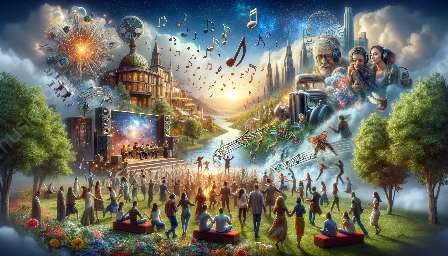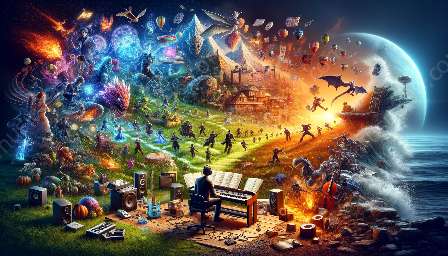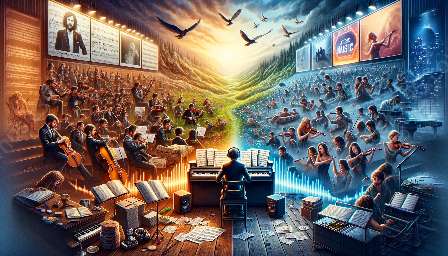Soundtracks play a critical role in shaping the portrayal of diverse perspectives and experiences in documentaries. The use of music in documentaries can profoundly impact the storytelling, emotional engagement, and the overall viewing experience for audiences. This topic cluster examines the influence of soundtracks in documentaries, exploring how music can evoke emotions, provide cultural context, and enhance the portrayal of diverse experiences.
The Power of Music in Communicating Diverse Perspectives
Soundtracks have the ability to convey emotional depth and cultural nuances in documentaries. By strategically incorporating music that reflects different cultural, social, and historical contexts, filmmakers can offer viewers a multi-dimensional understanding of diverse perspectives and experiences. The rhythm, tone, and instrumentation of a soundtrack can capture the essence of a particular culture or moment in time, inviting audiences to immerse themselves in the documented experiences.
Emotional Impact and Empathy
Music has the power to evoke strong emotions and create empathetic connections with the subjects portrayed in documentaries. A carefully selected soundtrack can amplify the emotional resonance of a scene, allowing the audience to empathize with the experiences of individuals from diverse backgrounds. This emotional engagement fosters a deeper understanding of the challenges, triumphs, and daily lives of people whose perspectives may differ from the viewer's own, ultimately promoting empathy and understanding.
Enhancing Storytelling and Engagement
Soundtracks enhance the storytelling elements of documentaries by creating a cohesive narrative and engaging the audience on an emotional level. The interplay of music and visual storytelling can elevate the impact of key moments, influence the pacing of the narrative, and cultivate a sense of connection between the audience and the subject matter. By using soundtracks as a storytelling tool, filmmakers can effectively frame diverse perspectives and experiences within a compelling and evocative narrative structure.
Reflecting Cultural Authenticity and Context
The use of culturally relevant music in documentaries can provide a deeper understanding of the context and authenticity of the portrayed experiences. Whether it's through traditional folk songs, region-specific melodies, or contemporary compositions, soundtracks can offer a lens into the cultural identity and historical background of the individuals or communities featured in the documentary. Music becomes a conduit for preserving, honoring, and sharing diverse cultural perspectives, adding depth and authenticity to the storytelling.
Integrating Soundtracks Responsibly
While soundtracks can significantly enhance the portrayal of diverse perspectives in documentaries, it's important to approach their integration with sensitivity and cultural awareness. Careful consideration should be given to the ethical and respectful use of music from different cultures, as well as the potential impact of the soundtrack on the intended message of the documentary. Filmmakers and production teams should strive to collaborate with musicians and cultural experts to ensure that the chosen soundtracks respectfully represent and contribute to the authentic portrayal of diverse experiences.
The Future of Soundtracks in Documentaries
As the documentary genre continues to evolve, so too does the role of soundtracks in shaping diverse perspectives and experiences. With advancements in technology and an increasingly interconnected global audience, filmmakers have greater opportunities to explore and integrate a wide array of musical influences to authentically capture diverse perspectives and experiences. The future holds the potential for innovative collaborations between filmmakers, composers, and musicians to create soundtracks that not only complement the visuals but also serve as powerful conduits for understanding, empathy, and cross-cultural storytelling.





















